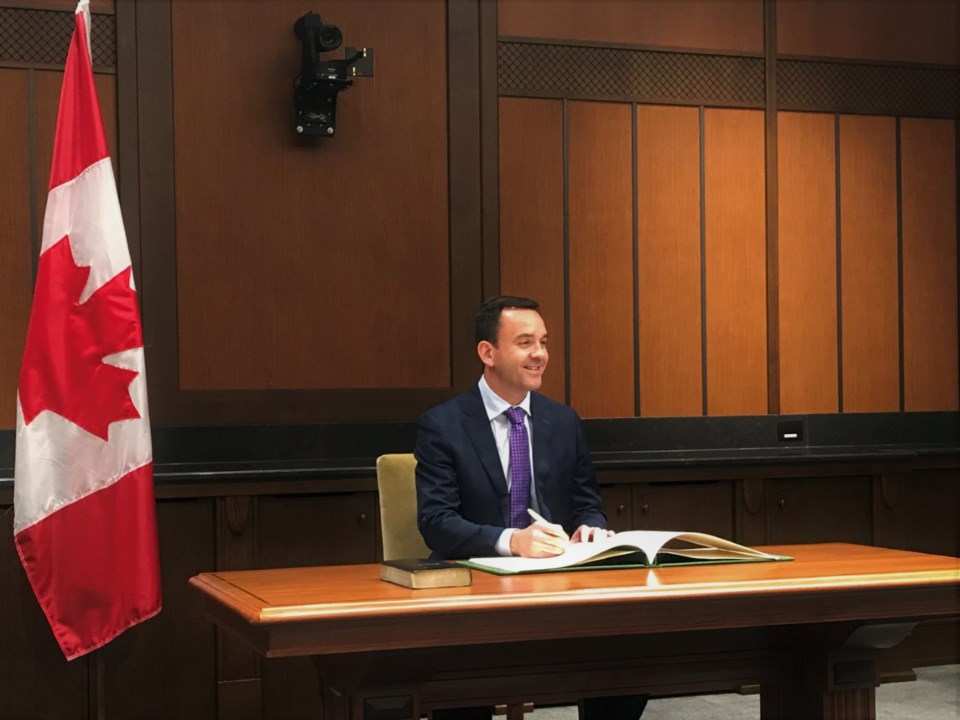ALBERTA –– On May 1, 2020 Prime Minister Justin Trudeau implemented a gun ban on more than 1,500 models of sporting weapons in Canada following a mass shooting in Nova Scotia that left 22 dead and three injured.
Public safety was deemed the reasoning behind the said ban with public safety minister Bill Blair saying "Banning these firearms will save Canadian lives."
This was done through an Order in Council, without any Bill or having it pass a first, second or third reading in the House of Commons which resulted in no potential debates from opposition.
"They did it by the stroke of a pen, and that's not how you're supposed to do things in a democracy, especially when you're talking about taking away people's rights and freedoms," said Banff-Airdrie MP Blake Richards. "They're not even giving members of parliament who are there on behalf of the people they represent a chance to vote on this, so people can't even hold the government or the MPs accountable for making these decisions and making this change because there is no way to do that."
The now prohibited firearms, which are in legal possession of Canadians across the country, represent nine categories of firearms with some of their components also being prohibited. These variants of makes and models include restricted and non-restricted firearms from standard hunting rifles to AR-15's.
"Our Olympians actually use some of these weapons in their competitions," said Richards.
Some have argued that the government should go even farther by including handguns in its ban - which Trudeau hinted at doing during a COVID-19 update on May 3 - while others are saying this is merely targeting legal gun owners and that emphasis should alternatively be put on the smuggling of illegal weapons across the border and see harsher jail sentences handed out.
Richards pointed out that the federal government is talking about military-style weapons and assault-style weapons, but that is not what they are really talking about because these types of weapons are already banned or prohibited in Canada.
"The liberal government, if they had their way, there wouldn't be any firearms in this country," he said.
Richards said in his opinion the amount of fine print that gun owners have to go through in Canada to legally possess and safely use their firearms is one of the most restrictive in the world.
"When you're looking to deal with crime, in this case, gun crime usually what you do is you take some actions that will target criminals and make sure they are punished for what they do, and you don't take actions that will just punish law-abiding people," he said, adding that the vast majority of gun crime in the Country is not conducted by legally owned weapons.
According to the Canadian Border Service Agency, 751 firearms were confiscated at the Canada-US border from 2017-2018. These are purchased in the United States for roughly $200 to $300 and then sold on the black market for $3,000. The influx in smuggled guns accounts for an increase in violent crime taking place in Canada.
A two-year amnesty order under the Criminal Code is in effect until April 30, 2022. This will allow for a transition phase to protect owners of newly prohibited firearms to not be charged with any criminal offences while complying with the latest regulation.
The Government of Canada has proposed a buy-back option to remove prohibited firearms from the public and Trudeau had mentioned a grandfathering program that would allow now prohibited firearms to be kept in the homes of legal gun owners. Trudeau has not acknowledged this statement since speaking to it back in May.
GUNPOST, an online classified gun ad website, stated this concept has since been removed from the RCMP website.
"Grandfathering would be a far preferable option because the other option of buy-back, what we're actually talking about there is government confiscation of people's property and using taxpayers money to pay them off. That means we all pay for that, so the government confiscates something, takes it away from a law-abiding person who rightly and lawfully owns it and then our tax dollars go to basically prevent a lawsuit, to me there's no winners in that scenario," explained Richards.
Cochrane RCMP Corporal Troy Savinkoff said that due to the two year grace period associated with the gun ban, Cochrane RCMP will not be enforcing any measures on the matter until direction is given.
"From a local detachment level, it hasn't been something that is at the front runner yet. I'm sure as we get closer to that two year period being over, it's something that we will have more discussions with and have a formal plan of how we are going to deal with it," said Savinkoff.
When reached for a statement, the NDP party declined to comment on the subject.
Trudeau has yet to address a timeline of when such measures would be introduced, stating they will move forward with legislation, "When Parliament allows."




